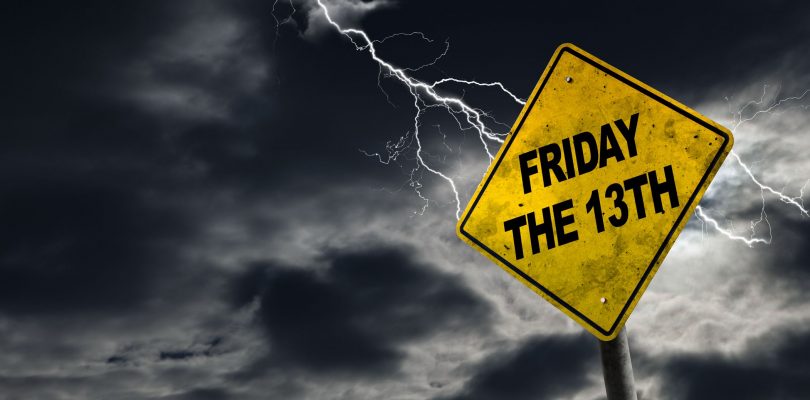Friday the 13th is the day that seems to let all the fears and superstitions that exist out to play. This day is even spookier when a full moon also occurs, which will not happen until 2049, but still, we know the day as one with ominous overtones. So, why does Friday the 13th hold this scary, superstitious meaning?
In general, the number 13 is thought to be highly unlucky, even though in classic numerology, it is simply a number. The actual terminology for the fear of the number 13 is triskaidekaphobia which is diagnosable, but the fear specifically of Friday the 13th is called paraskevidekatriaphobia.
This still doesn’t explain the Friday aspect because it seems odd to combine a random number and day to elicit fear in the heart. The answer is tangled in a bit of history, folklore, and a bit of superstition, which will be explored.
Basically, humans have been fascinated with numbers for a long time. The idea of specific numbers carrying esoteric, spiritual, or even occult significance has stood the test of time. Some are obsessed with the number 23 or see 11 as significant or have lucky numbers belonging only to them.
Some numbers are associated with dark superstitions, such as the 666 considered the devil’s number or 3 A.M. being the devil’s hour. Weirdly, the number 13 may be considered darker than all the others. So much so that some buildings do not have a 13th floor and some people refuse to stay or visit the 13th floor of a building or a room with the number.
The whole idea of the 13th day of a given month being unlucky, likely started in ancient Greece. This was based on a book called Works and Days, a type of farmer’s almanac that then warned against beginning to sow on the thirteenth of the waxing month. No further explanation was offered as to why.
The number 13 was also associated with Jesus and the disciples. It was specifically associated with the Last Supper in which Jesus and all 12 disciples were gathered, Judas being last. Obviously, this did not end well. This aligns with a Norse myth that involved Loki as the 13th guest. He brought total chaos and destruction when he arrived. This has made the 13th guest sinister for many years with numerous mysteries built around it. In fact, it is a common belief that if 13 people meet in a room, one will die within a year.
Across the years, this fear has become a long running meme. By the 19th century, skyscrapers were built without a 13th floor and societies of men defied the odds by having 13 members who met to cheat death and debunk the superstition. These clubs boast including at least five US Presidents over the years.
Brief History of Fridays
Now that the 13 has been somewhat explained, let’s focus on Friday. Chaucer is at fault for making Friday unlucky. In Canterbury Tales, he calls Friday a day “of misfortune”. What people fail to realize is that Chaucer was using irony and mocking humor and tragedy in this book. His reference was layered and may not have actually had significance other than Chaucer being himself. Moving forward to 1592, a playwright named Robert Greene first used the phrase “Friday-face” that stood for gloom and doom. However, there is not much context beyond the phrase for this one either.
By this point, for whatever reason, Friday was taking on a negative meaning. In the 1600s, another playwright described the “plague of Friday mornings”. This continued in other areas and countries over the years, but still, the day and date had to be combined.
The 20th Century
The Friday and 13th are said to have “unofficially” been combined on Friday 13th, 1307 when a raid on Knights Templar wiped them out for the most part. This is thought to be the original source of the fear. However, no one really thought much about pairing Friday and the 13th until the 20th century, even though most references were from the 19th century.
Lawson’s book in 1907, titled Friday, the Thirteenth, was about a fictional stockbroker who intentionally crashed the market on Friday the 13th. Then a year later the term and connotation about Friday the 13th showed up in reference to a senator who was deemed brave for introducing 13 bills on the fated day. From that point the myth grew.
When the Friday the Thirteenth movies were released in the 80s, the superstition was cemented. In the movie, the star was born on Friday the 13th and five of the 12 films occurred on a Friday the 13th. This superstition is so strong that plane tickets can still be bought cheaper on th 13th and stock prices tend to fall.
Truth
There is absolutely no evidence that Friday the 13th can bring harm to anyone. There is no need to fear this day because it is all based on random occurrences and superstition. If you cannot totally let the fear go, toss a little salt over your shoulder and you will stay safe.




